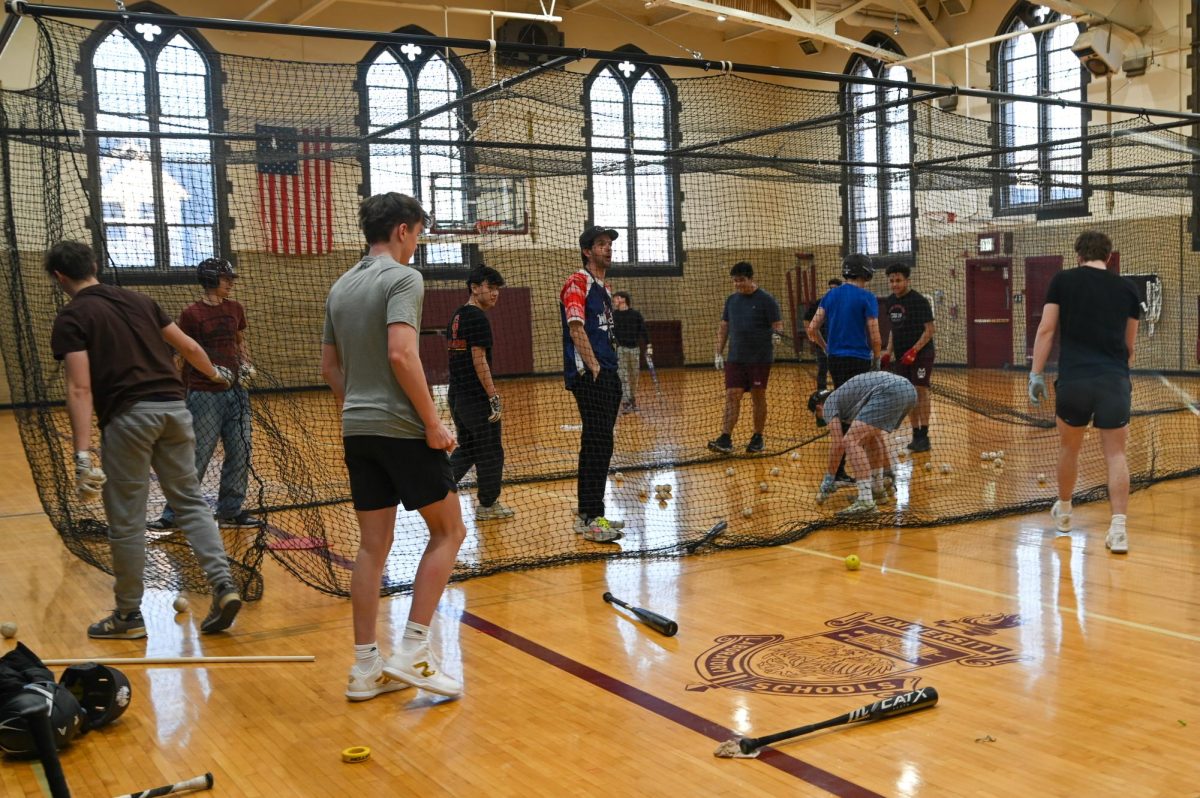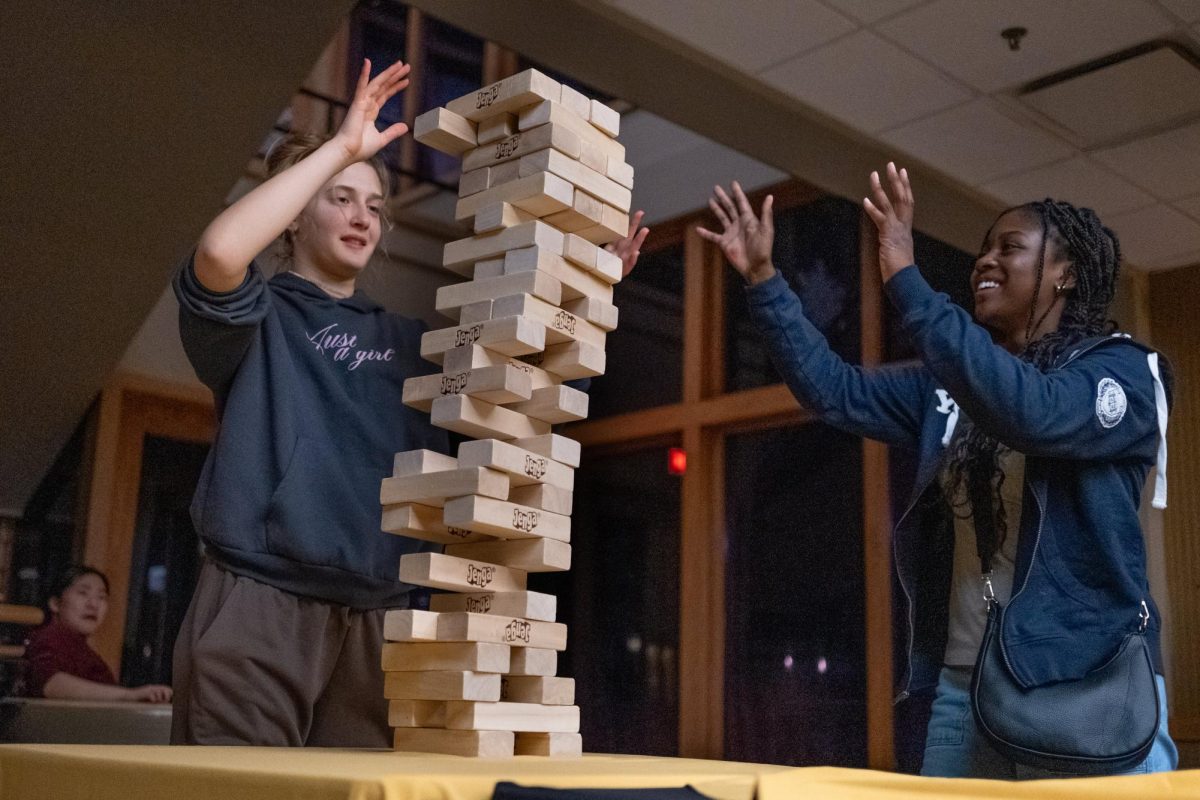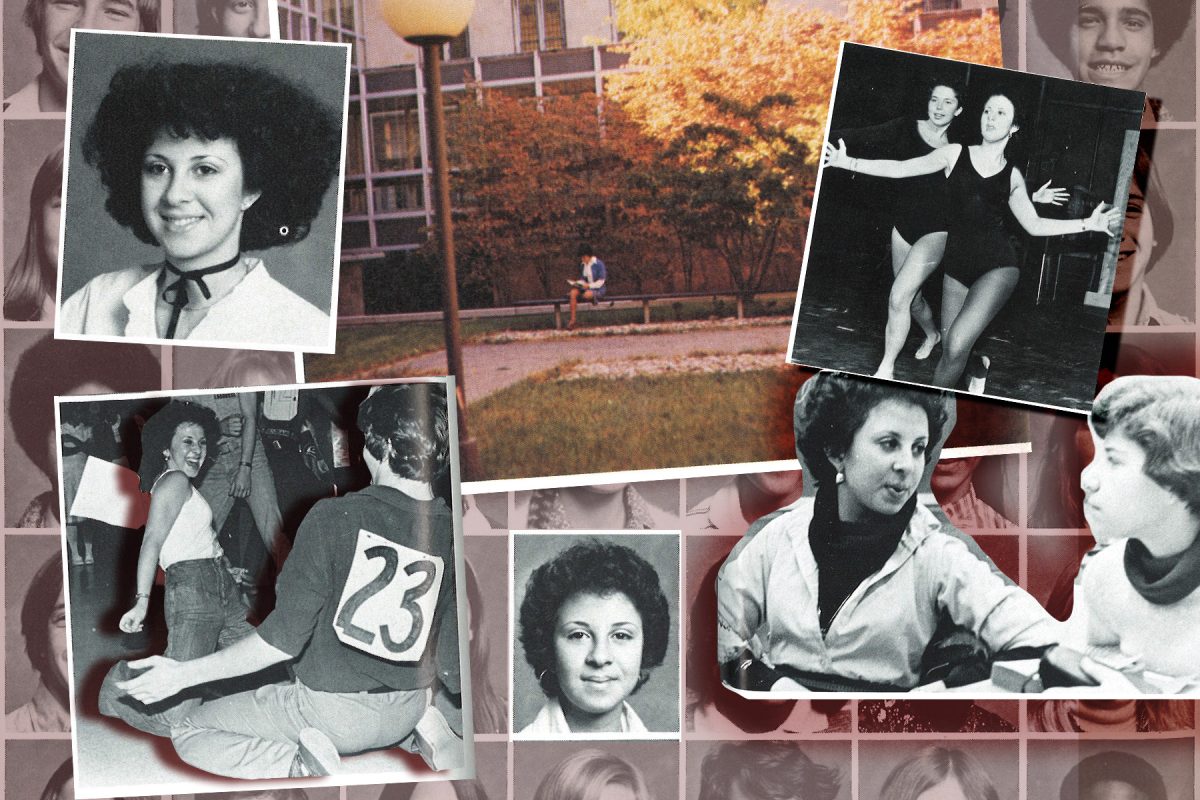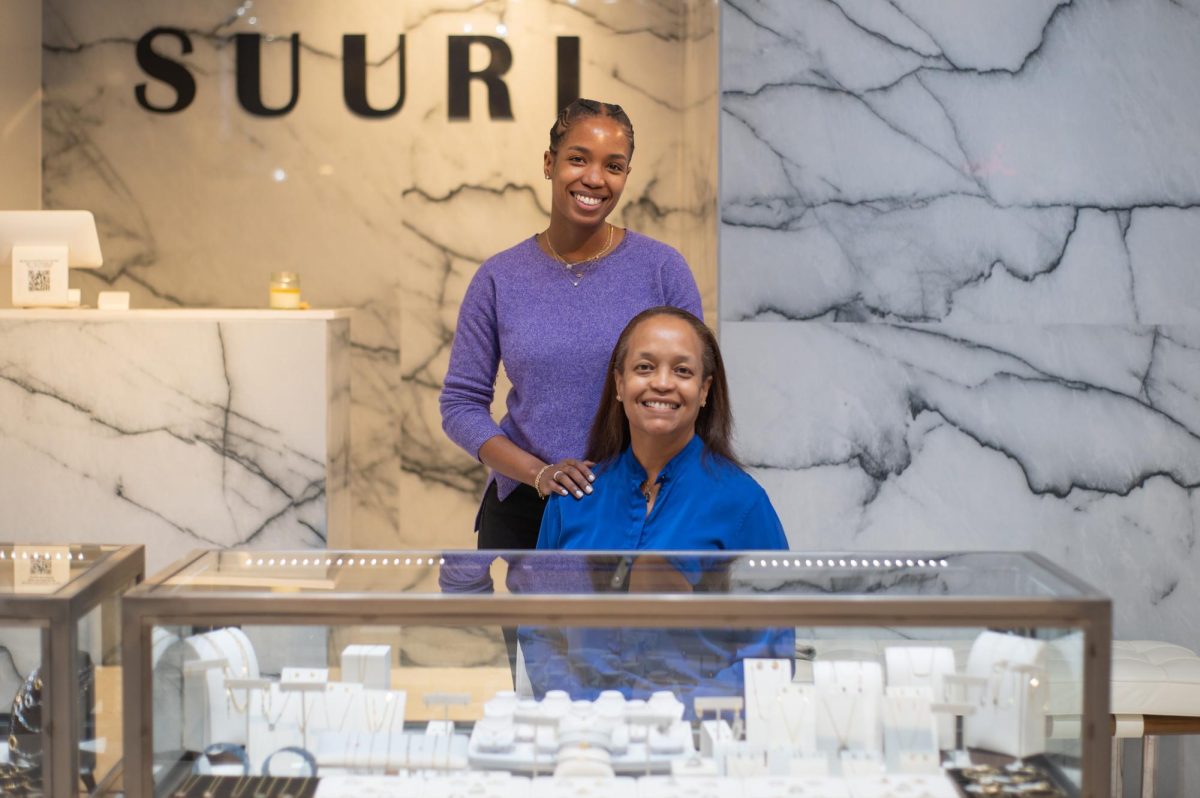It’s the mid-1970s. María Hinojosa and her U-High classmates have been studying history, but the emphasis feels different. Their teacher, Philip Montag, insisted on showing students how to truly grasp the lives of the people they were learning about, she recalled.
“He was really intent on teaching us to understand humanity across the world,” Ms. Hinojosa said. “I think that those kinds of things stick with you.”
The value Ms. Hinojosa absorbed at U-High of understanding a shared humanity has proven to be a driving force in a journalistic career that has spanned decades, broken barriers and drawn in voices that had often gone unheard.
In May, Ms. Hinojosa, Class of 1979, will receive the 2024 Distinguished Alumna Award during a ceremony in Gordon Parks Arts Hall.
Ms. Hinojosa, who has also been honored with an array of national awards, including four Emmys, has been a pioneer in newsrooms for over 30 years. She has reported for PBS, CBS, NPR, CNN and anchored Latino USA.
Ms. Hinojosa founded the nonprofit Futuro Media Group with the goal of publishing journalism from the perspective of people of color. Her podcast, Suave, about David Luis “Suave” Gonzalez, who served 30 years in prison for a crime he was accused of as a teenager, won a Pulitzer Prize in 2022.
It was that same sense of a collective humanity that she had learned at U-High, she said, that led her to relentlessly pursue Suave’s story.
“That allowed me — in that moment when I met Suave in 1993 — to connect with his humanity,” said Ms. Hinojosa. She added, “He had the capacity to dream of getting out when he was sentenced to life in prison without parole. How can you not be inspired by somebody who can dream like that?”
Early in her journalism career, Ms. Hinojosa, who moved from Mexico City to Chicago as a child, said she was seen as something of a radical in newsrooms that were dominated by white men. She openly advocated for racial and ethnic representation within newsrooms and audiences, before it was a priority for many.
“I would say now, 30 years later, all those people who thought I was being a bit of a rebel or trying to instigate change understand that what I was saying was right on the nose,” Ms. Hinojosa said. “I would say that one of my lasting impacts has been for newsrooms to understand why covering the diversity of our country — and all of its complexities — means doing excellence in journalism.”
Over her career, Ms. Hinojosa said, newsrooms have changed. Independent journalism sites now reach a wider range of audiences. Still, she said, the ownership structure of mainstream media has remained dominated by white men of privilege.
“The problem is when you have the media all from a certain perspective — a class perspective, gender perspective, heterogeneity perspective — you know, it’s just not good for the rest of us,” Ms. Hinojosa said. “You have the situation where we are in now, which are divisions and differences based on a lack of information and based on race and ethnicity dividing the country.”
At U-High, the theater department was where Ms. Hinojosa felt most at home. She participated in every production and even choreographed her own dances for Student Experimental Theater. She said the sense of voice she gained acting at U-High proved fundamental in her career.
“You can’t be a television journalist, a successful television journalist unless you’ve done some theater work, because it’s all about the presence,” Ms. Hinojosa said. “It taught me how to be present on stage and to begin to use my voice, which became the tool that I make my living off of.”
U-High’s academic environment, too, shaped Ms. Hinojosa into the journalist she is. She developed a persevering work ethic.
“I really felt like everybody was better than me at Lab. And so I worked really hard,” she said. “That was me who was in the library every single night, from, you know, 7:30 until 11 o’clock. I was studying on the weekends. I did summer school because I really needed to prove to myself — and to everybody — that I could hack it.”
It wasn’t just positive experiences at U-High that grew Ms. Hinojosa as a writer and person. Before U-High, she attended Bret Harte Elementary School, a Chicago public school a few blocks away. She saw a shift in privilege when she came to U-High. It alarmed her.
“I was particularly concerned with the apathy and the entitlement that I saw around me. Because I went to public school. And so I was like, ‘Yeah, look at all these privileged kids who complain about whatever,’” she said. She added, chuckling, “I’m like, ‘You guys have a pool.’”
For all the stories, podcasts and awards, Ms. Hinojosa said she is most proud in knowing she has served as a role model as a Latina in a field where that is rare.
“I do know that I have been an example for other young journalists,” Ms. Hinojosa said. “And that is the thing that makes me the proudest honestly.”

























































María Hinojosa • Mar 31, 2024 at 11:03 am
Ok tall I’m just thrilled to be in Midway. Thrilled! Great job Clare and also forever thanks to Ms Ambrosini